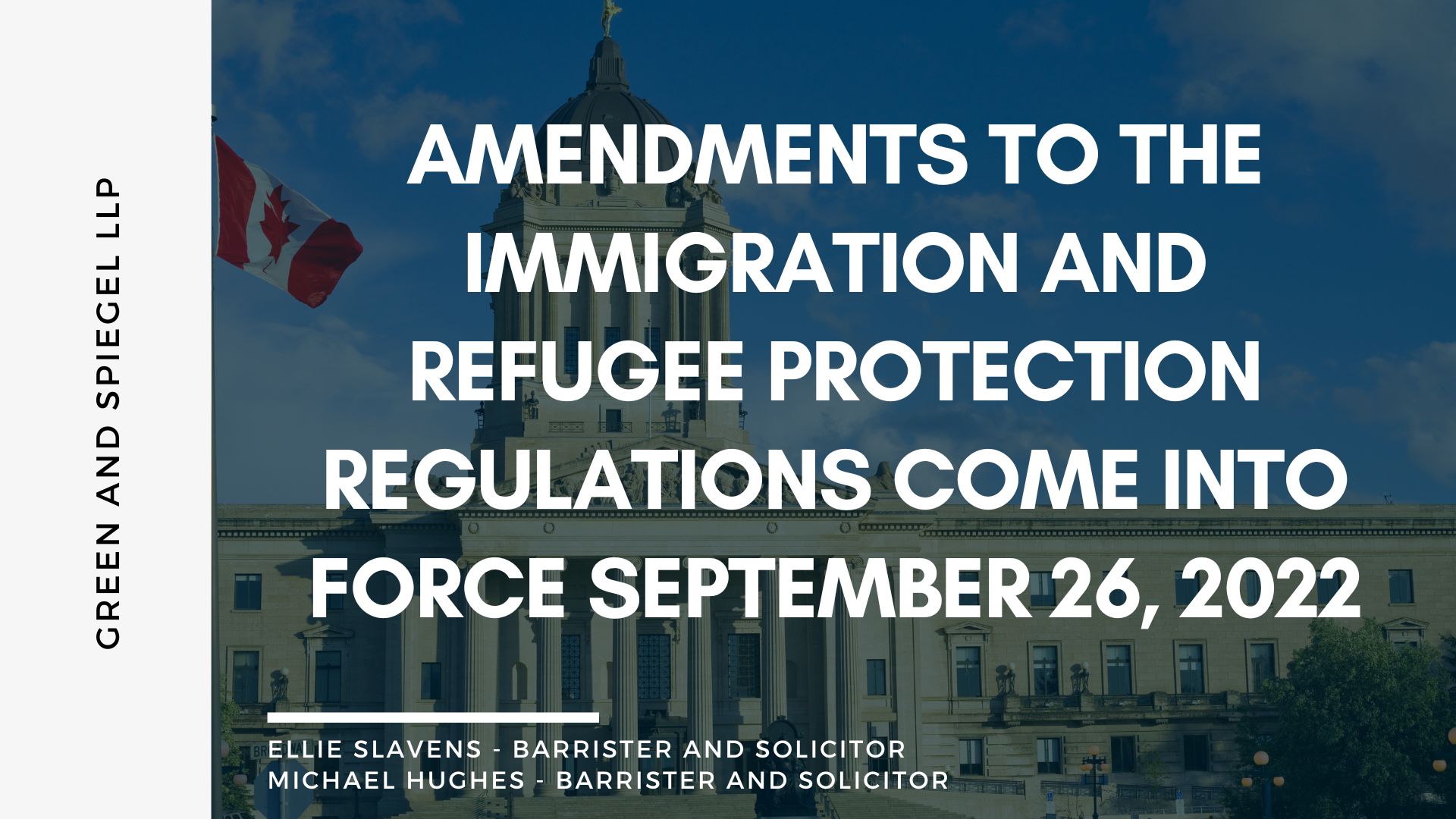
In the 2016 report of the Standing Committee on Human Resources, Skills and Social Development and the Status of Persons with Disabilities (HUMA), gaps in worker protections and program integrity were identified.
These regulatory amendments will strengthen protections for temporary foreign workers by setting new employer requirements and conditions and improving the ability to hold employers accountable for non-compliance. The amendments also aim to improve worker and employee awareness and to prevent mistreatment or abuse.
Temporary Foreign Worker Protections
Providing Information about rights in Canada
On or before the first day of work, employers will be required to provide foreign nationals with the most recent information about their rights in Canada in their chosen official language. Information will be supplied by the Canadian Government and the obligation will continue throughout the period of employment.
Providing an employment agreement
Employers making an LMIA application will be required to commit to finalizing an employment agreement with the worker and to providing the worker with a signed copy that outlines the occupation, wages, and working conditions on or before the first day or work. For the IMP program, the employer will attest to having already provided the employee with an employment agreement in the Employer Portal. The agreement must be in the worker’s preferred official language and signed by both parties.
Amended definition of “abuse”
Employers are required to make reasonable efforts to provide a workplace free of abuse under the existing regulatory conditions. The definition of “abuse” will be expanded to include “reprisal”.
Not charging or recovering fees
Employers will be prohibited from charging or recovering fees for the provision of services related to an LMIA, employer compliance fee, or recruitment. They will also have to ensure that recruiters they use do not charge or recover these fees. Excluded will be fees related to temporary resident visas, temporary resident permits and work permits, or those authorized under an international agreement between Canada and one/more countries concerning seasonal agricultural workers.
The LMIA form will require employers to confirm that they have not and will not directly or indirectly charge or recover fees from a foreign national in relation to the LMIA/ their recruitment, and further that any third-party recruiter acting on their behalf has not and will not do so.
There will be an attestation in the Employer Portal that neither the employer nor any third party they have used has charged or recovered fees related to the employer compliance fee/ recruitment.
The employer is not permitted to recover fees prior to or during the period of employment
Justification: if an employer made all reasonable efforts to comply and subsequently provided full compensation for any fees incorrectly charged or recovered, non-compliance may be justified.
Health and Safety
Employers will be required to make reasonable efforts to provide access to health care services when a worker is injured or becomes ill at their workplace. E.g., ensuring that a phone is available to call paramedics or organizing transportation to a hospital or medical clinic. Employers under the TFWP will also be required to obtain and pay for private health insurance that covers emergency medical care for their workers for any period of employment in which the TFW is not covered by provincial/ territorial health insurance.
Program Integrity
ESDC and IRCC will have the authority to require, without the consent of the employer and/or worker, that any third party provides any document relating to employer compliance with regulatory conditions. E.g., banks and payroll companies. They will continue to adhere to the Privacy Act requirements and collect only necessary information.
Where there is reason to suspect employer non-compliance with one or more of the following regulatory conditions and that failure would put at serious risk the health/safety of foreign national(s) if a work permit was issued, ESDC will gain the authority to suspend the processing of an LMIA request for such an employer until there is no longer a reason to suspect non-compliance and serious risk:
The employer must be actively engaged in the business in respect of which the offer of employment was made, unless the offer was made for employment as a live-in caregiver;
The employer must provide the foreign national with working conditions that are substantially the same as — but not less favourable than — those set out in that offer;
The employer must make reasonable efforts to provide a workplace that is free of abuse; and
The employer complies with COVID-19–related conditions.
If found to be compliant, the suspension will be lifted and the LMIA processed. Where there is a finding of non-compliance, the request will not be processed if in default on any Administrative Monetary Penalty (AMP) owed.
For new assessments for employers applying for an LMIA, or for employers who have not employed a foreign national under the TFWP in the six years before submitting their LMIA request, ESDC will assess whether the employer, in the two years preceding the LMIA request and provision of the LMIA:
Made reasonable efforts to provide a workplace that is free of abuse; and
Was not an affiliate of an employer who is ineligible or in default of any amount payable in respect of an AMP.
The seven factors used by ESDC to assess whether the employment of a foreign national is likely to have a neutral or positive effect on the labour market in Canada, currently given equal consideration as part of the overall assessment to determine the effect of hiring the foreign national will be re-weighted. There will be a pass/fail assessment made first of whether the wages set out in the offer are consistent with the prevailing wage for the occupation and whether the employment is likely to adversely affect the settlement of any labour dispute in progress, or the employment of any person involved in the dispute. The remaining factors will then be reviewed as part of the overall assessment.
ESDC’s authority to collect personal information on employers and foreign workers (through its confidential Tip Line, online reporting tool or communication media) related to compliance with conditions of the IMP and to share with IRCC inspection officials will be confirmed.
The amendments will clarify that employers must comply with all provincial and territorial employment and recruitment laws, including those that specifically relate to temporary foreign workers.
Some provinces require employers to register with the province before recruiting and hiring temporary foreign workers (Manitoba, British Columbia, Saskatchewan)
Some jurisdictions require mandatory licensing of recruiters to authorize who can and cannot engage in the recruitment and placement of temporary foreign workers (Manitoba, Saskatchewan, Ontario)
The sections of the Regulations that pertain to employer compliance reviews (ECRs), used until 2013 to verify the compliance of returning employers, will be repealed. Since 2013, ESDC and IRCC have had the authority to conduct inspections to verify employer compliance and they have not used the ECR authorities since 2019. Inspection authorities provide a more effective means for detecting non-compliance.
Some technical amendments to ensure the harmonization of the English and French texts that have been in force since April 2020 will be made.






